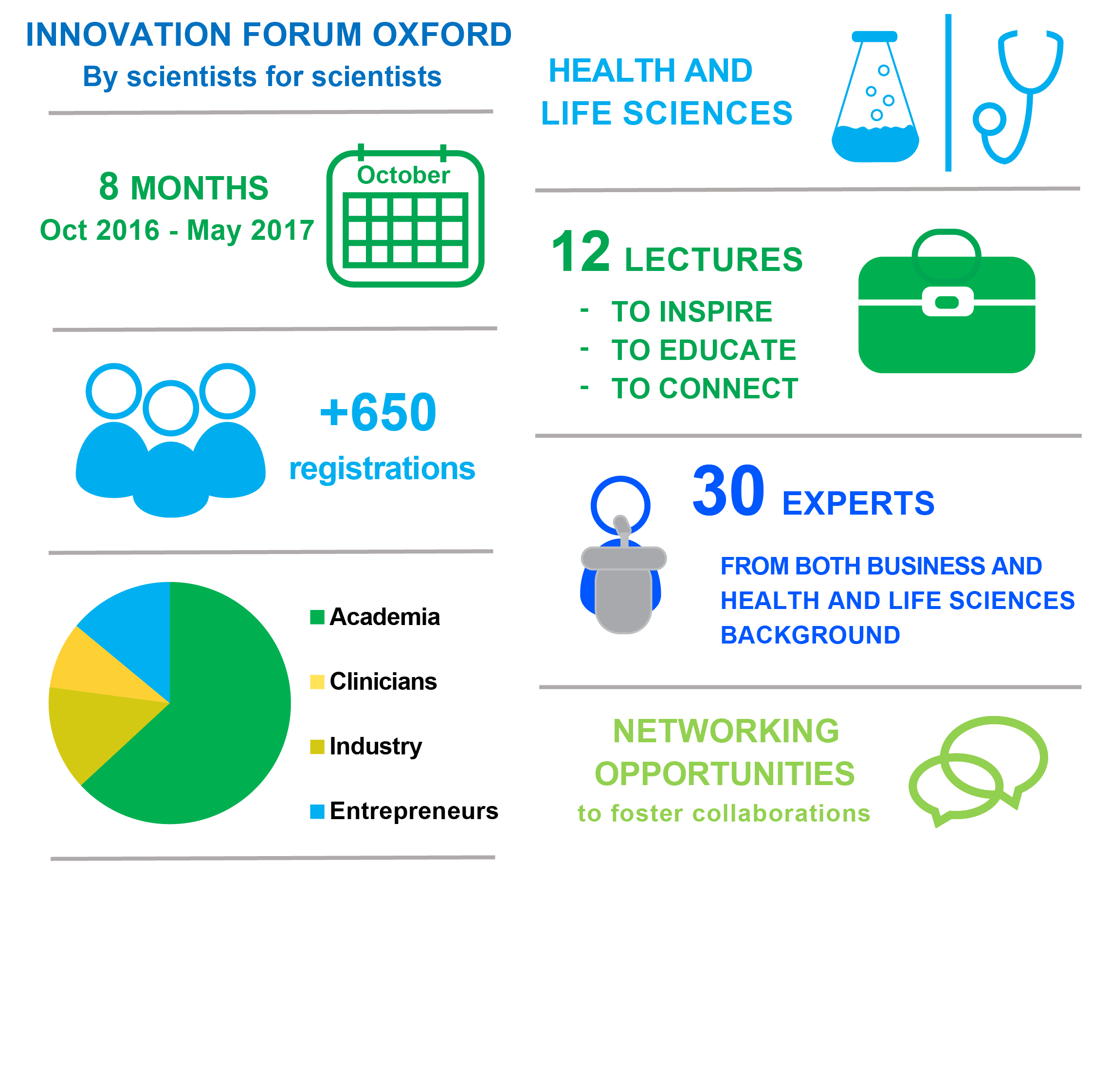Branch
Select your branch
Developing the next generation of science-entrepreneurs
Academic research is a source of innovation with an astronomical impact on our society. In healthcare, the world’s first antibiotic, Penicillin, was researched and developed for mass production by academics here at the University of Oxford. In technology, the invention without which our generation is unable to function, the World Wide Web, was invented by another great Oxonian: Tim Berners-Lee. Over the last century, the University of Oxford has continued to be a powerhouse for great ideas that are changing the way we live. In fact, Oxford is a leading centre for innovation, producing more founders of billion-dollar start-ups that any other institute in Europe. Just last year 21 discoveries were taken out of the lab and span into companies, attracting £50 million in early-stage funding grants, investment and partnerships with pharma. Inventions originating from Oxford have ranged from new drug delivery methods (EvOx Therapeutics), to stem cell therapeutics (OxStem), smart glasses that allow blind and partially sighted people to ‘see’ again (OxSight), a liver perfusion device that is transforming liver transplantation (OrganOx) and autonomous self-driving cars (Oxbotica).
The outstanding potential of academic research is immense. So how can we engage more scientists in entrepreneurship and enhance a translation-driven culture? There is a huge appetite for innovation and learning entrepreneurial skills in academia; this was reflected by the overwhelming interest in the lecture series on Entrepreneurship in Health and Life Sciences hosted by Innovation Forum Oxford hosted over the last 8 months. The series attracted 680 registrations from academia, the NHS, local entrepreneurs and industry experts; with significant representation from PhD students and researchers in training. The series featured 12 lectures delivered by 30 leading experts from both business, and healthcare and life-sciences backgrounds.
“Our goal was to raise the awareness of the commercial potential of academic research, as well as to inspire, educate and give scientists the skills to translate their discoveries into sustainable businesses. With this in mind, we delivered a series of lectures on entrepreneurship that were tailored for scientists interested in health and life sciences. To help them fully assimilate the concepts of commercialisation, we introduced all the business topics in the context of inventions that related to our audience, by pairing business experts with healthcare and life-sciences entrepreneurs.”
Dr Danuta Mariola Jeziorska
Former President of Innovation Forum Oxford (Dec 2015 – Jun 2017)
The series equipped the audience with an accessible basic toolkit in commercialising science, but most importantly raised awareness for opportunities and created a network platform to facilitate engagements between scientists, entrepreneurs, the NHS and industry experts.
There is a great interest in learning entrepreneurship in academia, so can scientists be entrepreneurs? Innovation Forum believes that they can and aim to create the next generation of science-entrepreneurs by inspiring, educating and fostering grassroots innovation!
 To learn more about the lectures series, visit. Stay tuned for next year’s activities by keeping an eye on oxford.inno-forum.org. as we look forward to hosting a series of workshops on commercialisation. This will allow us to put some of the concepts we have learned into practice: there is no better way of learning entrepreneurship than by DOING IT.
To learn more about the lectures series, visit. Stay tuned for next year’s activities by keeping an eye on oxford.inno-forum.org. as we look forward to hosting a series of workshops on commercialisation. This will allow us to put some of the concepts we have learned into practice: there is no better way of learning entrepreneurship than by DOING IT.
To learn more about the team of talented entrepreneurially minded scientists and clinicians from the University of Oxford and Oxford Brookes University, who have organised this initiative visit.
____________
The health and life-sciences lecture series was organised in collaboration with the MRC Weatherall Institute of Molecular Medicine and supported by main stakeholders within Oxfordshire entrepreneurial ecosystem: the Medical Science Division from the University of Oxford, Oxford University Innovation, the Said Business School, Enterprising Oxford, Oxford Academic Health Science Network, Oxford Biomedical Research Centre; and by global and local Innovation Forum Partners: JnJ Innovation, George James ltd, Orangefield group, Pennington Manches and James Coper Kreston, White October, Dehns, respectively.
-
Pingback: HOW TO BECOME A SCIENCE-ENTREPRENEUR? INNOVATION FORUM OXFORD TRAINING ON HEALTH AND LIFE SCIENCES ENTREPRENEURSHIP | Oxford


